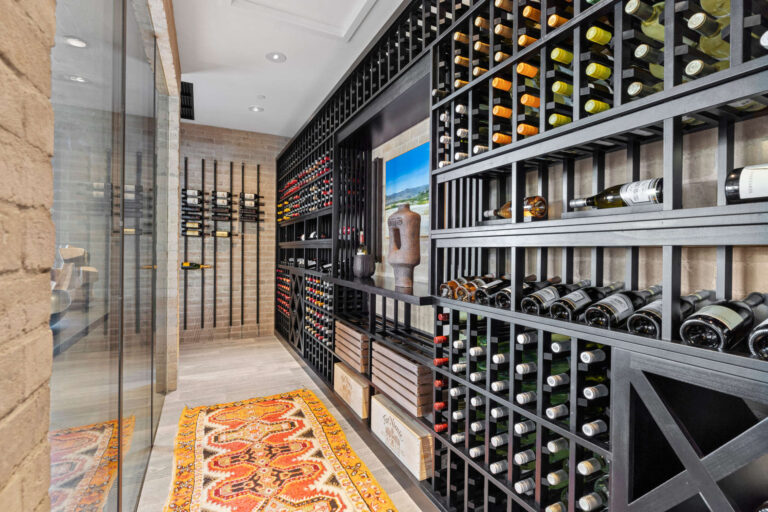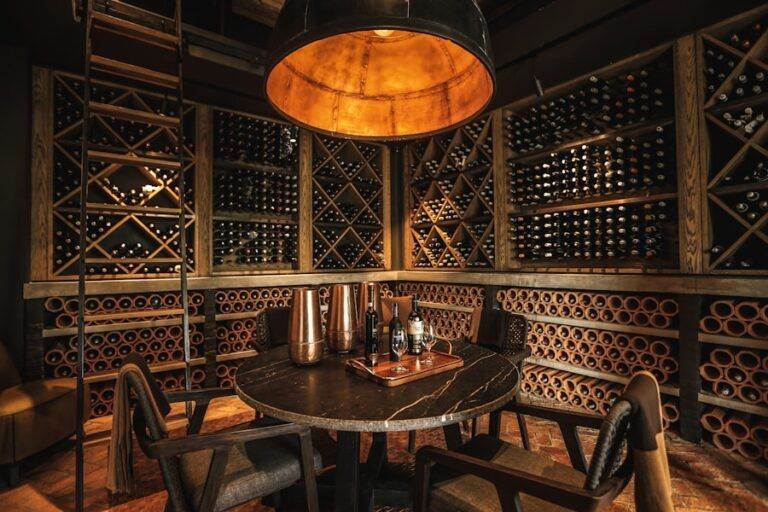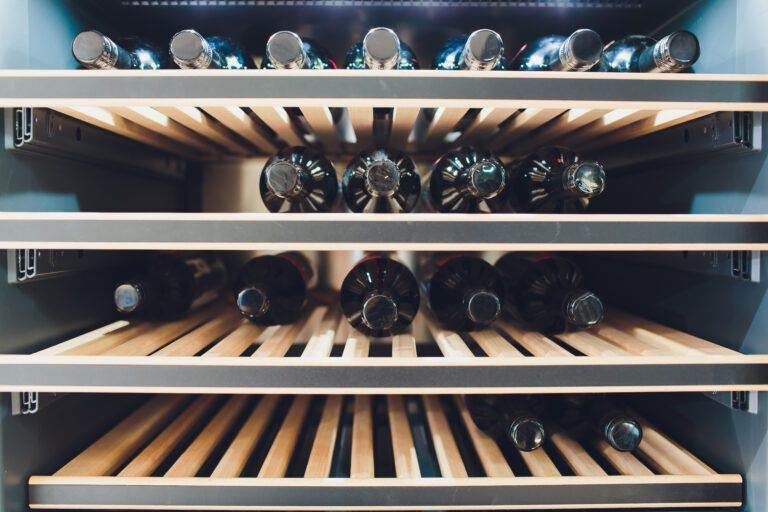Wine Storage Tips: How to Preserve the Flavor and Quality
Proper wine storage is essential for any wine enthusiast or collector. Whether you have a small collection of bottles or a large cellar, the way you store your wine can greatly impact its taste and longevity. Wine is a delicate and complex beverage that can be easily affected by its environment. By understanding the key factors that contribute to optimal wine storage, you can ensure that your bottles are preserved in the best possible conditions.
When wine is stored correctly, it can enhance its flavors and aromas, allowing you to fully enjoy the unique characteristics of each bottle. Temperature control, humidity levels, light exposure, ventilation, cork quality, storage location, and the use of wine racks and shelving are all important considerations when it comes to storing wine properly. By paying attention to these factors, you can ensure that your wine collection remains in top condition for years to come.
Temperature Control
Temperature control is one of the most critical factors in wine storage. The ideal temperature range for storing wine is between 45°F (7°C) and 65°F (18°C). Fluctuations in temperature can have a detrimental effect on the quality of your wine. When exposed to high temperatures, wine can age prematurely and develop off-flavors. On the other hand, if stored at too low temperatures, the aging process slows down and the flavors may become muted.
To maintain a consistent temperature in your storage area, it is important to choose a location that is not subject to extreme temperature changes. Avoid areas near windows or exterior walls that may be exposed to direct sunlight or drafts. If you don’t have a dedicated cellar or wine fridge, consider using a temperature-controlled wine cabinet or cooler to maintain the ideal conditions for your collection.
Humidity
Humidity is another crucial factor in wine storage. The ideal humidity range for storing wine is between 50% and 70%. Proper humidity levels help keep the corks moist, preventing them from drying out and allowing air to enter the bottle. If the humidity is too low, the corks can shrink and lose their seal, leading to oxidation and spoilage of the wine. Conversely, if the humidity is too high, mold and mildew can develop on the labels and corks.
To maintain proper humidity levels, it is important to store your wine in a location that has adequate moisture. Avoid storing wine in areas that are too dry, such as near heating vents or in basements with dehumidifiers. If necessary, you can use a humidifier or a damp cloth to increase humidity in your storage area. However, be cautious not to over-humidify, as excessive moisture can also damage the labels and corks.
Light Exposure
Light exposure can have a negative impact on the quality of your wine. Ultraviolet (UV) rays, in particular, are harmful to wine as they can break down organic compounds and cause chemical reactions that result in off-flavors and aromas. This is why wine bottles are typically made of colored glass or wrapped in foil to protect them from light.
To protect your wine from light exposure, it is important to store your bottles in a dark area away from direct sunlight. Avoid using fluorescent lights or other sources of UV light in your storage area. If you have a wine cellar or cabinet with glass doors, consider using UV-blocking film or curtains to further protect your bottles.
Ventilation
Proper ventilation is crucial for wine storage as it helps prevent the buildup of odors and mold. Poor ventilation can lead to musty smells and affect the overall quality of your wine. It is important to ensure that there is adequate airflow in your storage area to keep the air fresh and prevent any unwanted odors from seeping into your bottles.
To ensure proper ventilation, avoid storing your wine in enclosed spaces or areas with poor air circulation. If you have a wine cellar or cabinet, make sure it is well-ventilated and has proper insulation to prevent any odors from entering. Regularly check for any signs of mold or mildew and address them promptly to maintain a clean and odor-free storage environment.
Corks
Corks play a crucial role in wine preservation as they create a seal that prevents air from entering the bottle. The quality of the cork can greatly affect the quality of the wine. Poor-quality corks can lead to oxidation and spoilage, while high-quality corks can help preserve the flavors and aromas of the wine.
When storing wine bottles with cork closures, it is important to keep them in a horizontal position. This allows the wine to keep the cork moist, preventing it from drying out and shrinking. If the cork dries out, it can lose its seal and allow air to enter the bottle, resulting in spoilage. Additionally, storing bottles horizontally helps prevent sediment from settling at the bottom of the bottle, which can affect the taste and appearance of the wine.
Storage Location
Choosing the right location for wine storage is crucial for maintaining optimal conditions for your collection. Certain areas of the home are better suited for wine storage than others. Ideally, your storage area should be cool, dark, and free from temperature fluctuations and odors.
A basement or a dedicated wine cellar is often the best choice for long-term storage as they tend to have stable temperatures and humidity levels. If you don’t have access to a cellar, consider using a temperature-controlled wine cabinet or cooler in a cool and dark area of your home. Avoid storing your wine in areas such as kitchens or laundry rooms that are subject to frequent temperature changes and odors.
Wine Racks and Shelving
Using wine racks and shelving is not only practical for organization but also beneficial for maintaining optimal wine quality. Wine racks and shelving allow for proper air circulation around the bottles and help prevent any unwanted movement or vibrations that can disturb the sediment in the wine.
When selecting wine racks and shelving, it is important to choose materials that are sturdy and resistant to moisture. Wood and metal are popular choices as they are durable and can withstand the weight of the bottles. Avoid using plastic or wire racks as they may not provide adequate support and can potentially damage your bottles.
Wine Coolers and Refrigerators
Wine coolers and refrigerators are a convenient option for storing wine, especially if you have a smaller collection. They provide precise temperature control and often have built-in humidity control, making them ideal for preserving the quality of your bottles.
When selecting a wine cooler or refrigerator, consider the size of your collection and the space available in your home. Look for models that offer dual-zone temperature control, allowing you to store different types of wine at their respective optimal temperatures. Additionally, choose a model with UV-resistant glass doors or solid doors to protect your bottles from light exposure.
Storing Opened Bottles of Wine
Storing opened bottles of wine requires special attention to ensure that they remain fresh and enjoyable for as long as possible. The ideal temperature for storing opened wine is between 40°F (4°C) and 50°F (10°C). This helps slow down the oxidation process and preserve the flavors and aromas of the wine.
To store opened bottles, use a vacuum pump or airtight stopper to remove as much air as possible from the bottle. This helps prevent oxidation and keeps the wine fresh for longer. Store the bottle upright to minimize contact between the wine and oxygen. If you have a small amount of leftover wine, consider transferring it to a smaller bottle to reduce the amount of air in contact with the wine.
Proper wine storage is essential for preserving the taste and longevity of your bottles. By paying attention to factors such as temperature control, humidity levels, light exposure, ventilation, cork quality, storage location, and the use of wine racks and shelving, you can ensure that your wine collection remains in optimal condition. Whether you have a small collection or a large cellar, prioritizing proper wine storage will allow you to fully enjoy the unique flavors and aromas of each bottle for years to come.







